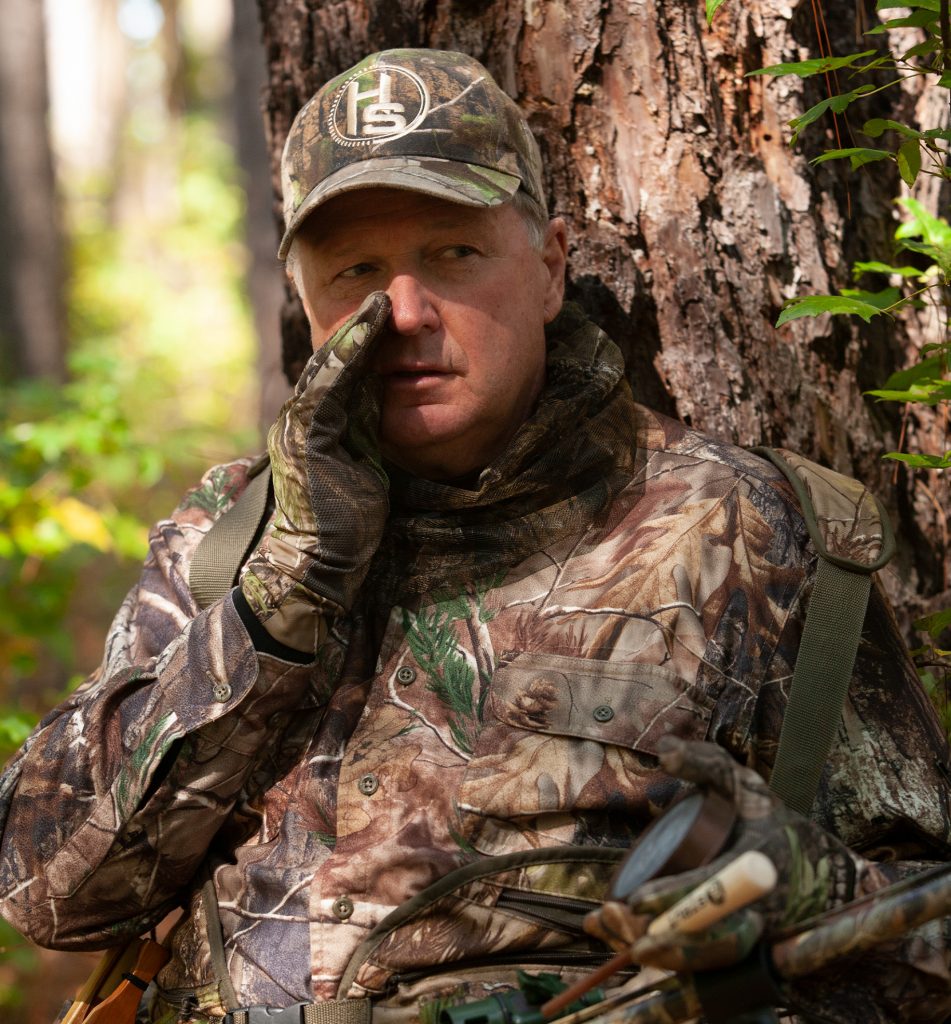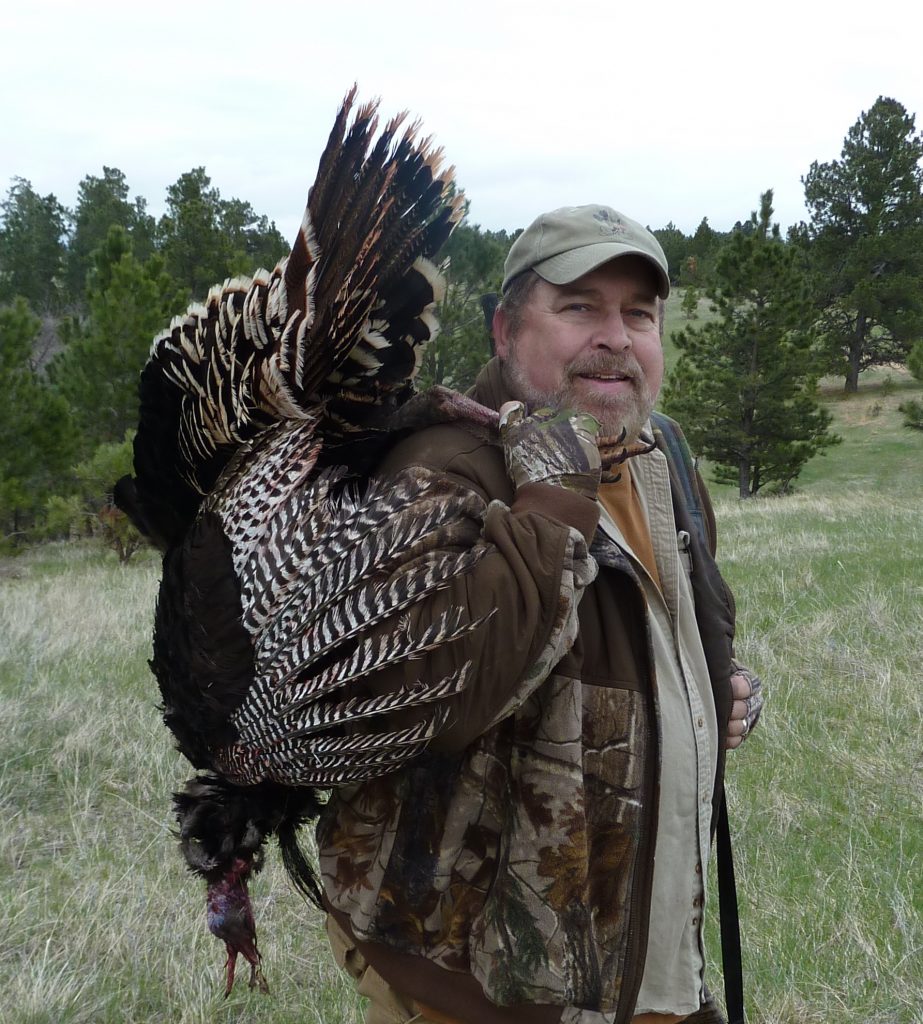Lessons From The Legends
Since becoming an outdoor communicator, when I joined the staff of Outdoor Life out of college in 1970, I’ve had the privilege of meeting several celebrated sportsmen. Some of them were turkey hunting pros who took me under their wing and, in doing so, taught me valuable lessons.
The Kirby Method
The late Dick Kirby founded Quaker Boy Game Calls. Dick, however, not only made game calls, he made them sing. He was a champion caller and accomplished hunter, completing more than two dozen Grand Slams. Dick and I met at an outdoor writer gathering when I was later working as an editor at Field & Stream. Sometime after that first meeting, Dick invited me to join him at the home of acquaintances in West Virginia, close enough to hunt just across the border in Virginia.
We only had a couple of days to hunt. That first morning, Dick and I roamed the national forest and set up several times because we weren’t getting any responses to our calls — his calls, that is — while we walked.
Sitting next to him against hardwoods wide enough for two hunters, I listened to his broad range of music, from soft tree yelps and tranquil purrs to fly-down cackles and more aggressive yelps. I was enraptured by his skill with diaphragm, box and slate calls, and I listened intently to try to mentally record his offerings.
“You don’t have to be a great caller to bring in a tom,” he whispered. “Heck, I don’t think a real hen would win a turkey calling contest. But you do need to know how to use the calls, know how to make different calls and know when and how often to use them.
“Most hunters call too much. I’m one of them. We love to hear our own calling. The challenge is to call just enough to make that tom want to come to you. Too much calling, and he’ll wait you out.”
The Turkey Man
Eddie Salter was given a domestic turkey when he was a boy, and from that bird, he learned turkey vocabulary and how to speak it eloquently. He went on to win many calling contests and begin his own call manufacturing company. From there, he became one of the faces of Hunters Specialties, which bought his company and began touring the country, giving seminars and starring in videos and television programs.
In 1998, I was invited to four outdoor writer turkey hunting camps, each in the range of a specific subspecies. One of the commercial sponsors of the camps was Hunters Specialties, and Eddie was one of his company’s representatives. That spring, I achieved the Grand Slam, with Eddie often by my side.

The Slam pursuit began in Florida and almost ended there, with hunting time quickly running out during my two-day hunt. I’d seen nothing on Day 1, and on Day 2, I passed up a shot at a gobbler I had roosted when I believed, after fly-down, that it was beyond my comfort zone. Then Eddie stepped in. Only minutes before legal shooting time ended, Eddie spotted five gobblers in a field. We sneaked partly up a hillside, and then Eddie began his magical calling. As if his call was magnetic, the birds crossed the field and started downhill toward us in single file.
“Take the third bird,” he whispered.
Seconds later, I tagged what turned out to be the 10th largest Osceola by NWTF measurements at that time.

“It just goes to show,” Eddie said. “If necessary, you’ve got to hunt right up to the end of legal shooting time. You can’t give up hope.”
That lesson has stuck, too, and it keeps me going when I am ready to call it a day.
Eye on the Wild Turkey
Ray Eye is another legend in the turkey hunting world. His TV, radio, video and live seminar exposure has clearly established him as one of the greats. When I was invited on Ray’s annual hunt in his home state of Missouri, I bagged the largest gobbler — 23 pounds — of my hunting career. Later, when Ray came to New York’s Catskill Mountains, however, I actually hunted with him and got to learn from the maestro.
Ray left me at the edge of a field while he set out to scout. Meanwhile, I saw a gobbler, but it showed only fleeting interest in my calling and wandered off without offering a shot. By the time Ray and I hooked up later in the morning, the wind was howling.
“This warrants my box call,” Ray said.
He blasted a few raucous yelps that pounded my eardrums. Fortunately, they were loud enough to fight through the wind. A couple hundred yards away, we heard a faint gobble. Rushing toward the source of that sound, we hunkered down in a hedgerow, where we soon discerned two toms were squabbling over the rights to an accompanying hen.

“Let’s see if we can get in on the squabble,” Ray said.
With that, he emitted a series of loud, abrasive yelps. The hen didn’t cotton to competition.
“Here she comes,” Ray said.
As she angrily yelped as she approached to investigate, the two gobblers followed.
With the hen almost on top of us, I pulled the trigger. The larger of the two toms went down.
“Sometimes, soft calling is best,” Ray said as I tagged my bird. “But sometimes, loud and aggressive is what it takes. In the wind, give it everything you’ve got. And when you want to make the hen jealous and mad, let her know you mean business.”
I’ve always remembered Ray’s advice on loud, aggressive calling when conditions call for it — lessons that have served me well.
Through 40-plus years of turkey hunting, I’ve learned a lot on my own and from other companions afield. Perhaps what I most fondly remember, however, are a few basic gems of advice from some of the pastime’s immortals, taught to me during unforgettable hunts.
